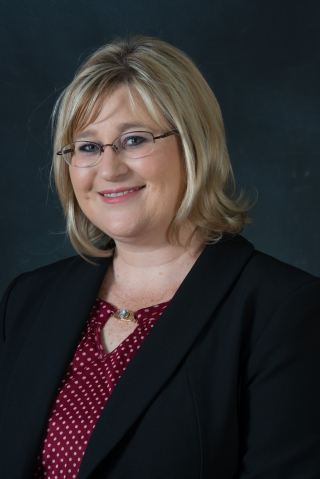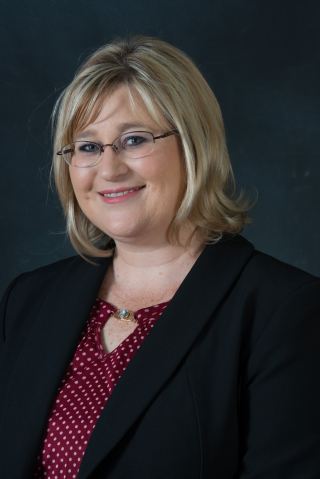Leadership? Only humans need apply
By Annelize van Rensburg* - Director: Signium Africa (www.signium.co.za)
Ours is a disruptive world. Disruptors include AI, robotics, computerisation, globalisation and the imminent fourth industrial revolution. Already, a growing number of commercial and industrial processes are being dehumanised. So, are humans reaching their sell-by date?
Admittedly, people will have to adapt or cry (over lost jobs or diminished career prospects). The good news is that a stellar future awaits those who are flexible, resourceful, emotive and empathetic (in other words, the very human humans). This is especially true of corporate leaders who are developing coping strategies for the 2020s.Pertinent insights are afforded by work in my own specialisation – executive search and talent acquisition. Among leading practitioners, the goalposts have widened to the point where the work now entails close partnership with corporates with the aim of shaping integrated leadership and talent solutions.
Listening, understanding and empathising are the key requirements, not crunching the data to find candidates with the technical qualifications and relevant experience. Machines can do that.But machines can’t sense the cultural fit or feel the chemistry when a potential leader is exposed to new challenges.
These days, you can put a smiling face on a machine, but you can’t instil empathy and the human ability to assess feelings and emotions. Only humans can do that – whether you are a so-called headhunter looking for the ideal fit or a seasoned business leader creating a succession strategy by developing and acquiring the right talent.The importance of very human qualities is spotlighted when working with an individual executive looking to ensure continued relevance as a senior corporate performer.he key question is: what do I need to do or be to ensure career success in five years’ time?
Research the literature and international studies and the answer is the same … stay human, become more empathetic, improve your listening skills, increase your understanding of the needs of others and look to make an emotive bond with peers and subordinates.how your human qualities and colleagues and customers open up to you.
An ongoing conversation with key players will nurture the relationships that enable the organisation to anticipate demands and meet expectations.oft skills can’t be written into an algorithm. They set us apart and ensure our superiority over the cobots. Soft skills don’t create soft leaders. They create a growth platform for highly successful, ultra-receptive leaders.So, demonstrate learning agility, absorb new information and insights. Make sure there is still joy and excitement in your job; not just for you but for everyone on the team.
Creativity drives today’s successful business, not mindless repetition. A very human spark drives creativity, not reams of data.Insight and interpretation give leaders the power to focus on the key issues. A machine can generate a 25-page report filled with techno-babble. A receptive human can condense that into one page with half-a-dozen action points.ind joy in sharing and communicating. If you take everything on your own shoulders you eventually feel sucked dry by the demands of leadership. You go on to auto-pilot. In other words, you become a machine, and that’s a no-no.
Adapt by all means, but stay human. You and your organisation will be better for it.
*Annelize van Rensburg is a director of Signium Africa (previously Talent Africa), a leading South Africa-based executive search and talent management company servicing sub-Saharan Africa.
Design the Official Loeries T-Shirt and be a VIP at Creative Week
You’ve got ideas. You’ve got talent. And as a young creative, you just need the world to see your amazing creativity, artwork and execution, right?
Now here’s your opportunity: Submit your most impressive creation for the official Loeries T-Shirt, in partnership with Barron, and you and a partner could be VIPs at Loeries Creative Week in August.
To enter the competition
1. Give us your design of what you think the ideal Loeries T-shirt should be. No limits…
2. Go to loeries.com and download the T-shirt template. Post your creative design to Facebook or Instagram using the hashtag: #LoeriesBarronDesign. Share your designs with the world and get your people liking and loving your posts. The 20 most liked designs will be shortlisted and the Loeries committee will select the winning design. The winning design will be used for the Official Loeries T-shirt at Creative Week.
The winner receives two VIP tickets to Loeries Creative Week, 19 to 25 August, 2019, in Durban (Travel and accommodation excluded).
Barron has been creating unique corporate and promotional products for over 25 years and is also the proud sponsor of the Media Innovation Category at the Loeries this year. It is a category focused specifically on new methods and approaches to advertising, on any media platform.
Loeries CEO Andrew Human explains that “the Loeries Africa Middle East celebrates creativity and brilliance in the advertising and marketing space. It rewards brand communications that make us feel something, question the status quo and rethink our way of doing things. We’re delighted that Barron is sponsoring this competition, and we fully expect some unique and interesting design entries.” Loeries Creative Week takes place in Durban from 22 to 25 August. Go to loeries.com for more information and to book your tickets
Career risk mitigation – the way to go for corporate high flyers
Career risk mitigation – the way to go for corporate high flyers by Michelle Moss* (Signium Africa: www.signium.co.za) 2019 Obsolescence. It happened to VCRs. It also happens to executives, even high flyers; especially the tunnel-vision variety that obsess about the job on hand.
Obsolescence no longer takes decades. It can happen at pace as technologies change and businesses react to new legislation, heightened competition and more demanding customers. Forward-thinking executives increasingly realise they have to be fit for purpose today and in five years’ time. Obsolescence is a career risk and like any risk can be managed by putting proper mitigation strategies in place.
Talent search and management companies – so-called corporate head-hunters – face increasing calls from individuals for a heads-up on changing competency requirements. Often, the request comes from the mid-life CEO, the high achiever who took a leadership role aged 45 and is determined to be in place (or to have moved on to bigger and better things) by the time he or she is 55. Competency-focused future-spotting is driven by the desire to mitigate the risk of a stalled career. However, parameters widen almost immediately.
Reference to relevant literature like the World Economic Forum’s ‘Future of Jobs Report 2018’ and the work of the MIT Initiative on the Digital Economy indicate that personal competencies are inextricably linked to the corporate future. The business or industry vision invariably shapes the personal quest for continuing relevance by individual executives.
A global player like Riverwaves (a world leader in bespoke competency-based HR solutions) is close to these developments. Alexandra Pascu, Riverwaves’ GM - Middle East and Africa, notes: “Customised competency models drive business strategy while delivering benefits across the board - at individual, HR department and organisational levels.”
According to studies on the statistical validation of competency models**, the tangible return on investment includes a 63% reduction in staff turnover through increased employee satisfaction (attributable to greater clarity on performance expectations), a 19% improvement in employee performance and a 12.5% rise in sales and profits (a by-product of competency-based training). Adoption of a bespoke competency model enables organisational vision and values to be translated into employee behaviour.
According to Pascu, the corporate embrace of competency modelling has been accompanied by a global increase in demand for in-house competency training for line managers and talent professionals. So, we see shared focus on future-ready skills by both the organisation and its people (including those in the C-suite).
Individuals looking to avoid personal obsolescence increasingly find themselves working in a de facto partnership with organisations that are just as eager to stay current and relevant. The result doesn’t have to lead to a total immersion in new technologies. We may find ourselves working alongside robots and co-bots while dealing with digitisation and artificial intelligence, but very human attributes will make us special and keep us on top.
The World Economic Forum believes workforces will become even more diverse (multi-racial, multi-cultural and multi-generational with greater female representation). Orchestrating the input of ‘gig’ workers, freelancers, short-term project teams and consultants will be vital as structures become more flexible. Such scenarios help explain a quick competency to-do list suggested by MIT’s Erik Brynjolfssons. He advises us to put our focus on: o Creativity o Emotional intelligence (interpersonal skills, teamwork and leadership) o Passion for our work Apparently, love never goes out of style.
Not even love for what you do.
-- ENDS --
*Michelle Moss is a Director at Signium Africa (previously Talent Africa), a leading South African-based executive search and talent management company servicing sub-Saharan Africa. www.signium.co.za **Meta-analysis study reported in “The economic value of emotional intelligence competencies and EIC-based HR programmes”, Lyle Spencer. In Cherniss, C. and Goleman, D. eds. The Emotionally Intelligent Workplace: How to Select for, Measure, and Improve Emotional Intelligence in Individuals, Groups and Organisations. San Francisco, CA: Jossey-Bass/Wiley 2001. Spencer, Lyle, “Competency Model Statistical Validation and Business Case Development.”www.inscopecorp.com/resources-papers-statistics.aspx, 2004.
Website: www.signium.co.za Tel: +27 11 771 4800 Issued By: Tale Spin Media & Marketing Zelda Williams 082 461 0689 or Gillian Schmid 082 960 3233 This email address is being protected from spambots. You need JavaScript enabled to view it. This email address is being protected from spambots. You need JavaScript enabled to view it.
Career risk mitigation - the way to go for corporate high flyers
By Michelle Moss*
Obsolescence. It happened to VCRs. It also happens to executives, even high flyers; especially the tunnel-vision variety that obsess about the job on hand. Obsolescence no longer takes decades. It can happen at pace as technologies change and businesses react to new legislation, heightened competition and more demanding customers. Forward-thinking executives increasingly realise they have to be fit for purpose today and in five years’ time. Obsolescence is a career risk and like any risk can be managed by putting proper mitigation strategies in place.
Talent search and management companies – so-called corporate head-hunters – face increasing calls from individuals for a heads-up on changing competency requirements.
Often, the request comes from the mid-life CEO, the high achiever who took a leadership role aged 45 and is determined to be in place (or to have moved on to bigger and better things) by the time he or she is 55. Competency-focused future-spotting is driven by the desire to mitigate the risk of a stalled career. However, parameters widen almost immediately.
Reference to relevant literature like the World Economic Forum’s ‘Future of Jobs Report 2018’ and the work of the MIT Initiative on the Digital Economy indicate that personal competencies are inextricably linked to the corporate future. The business or industry vision invariably shapes the personal quest for continuing relevance by individual executives. A global player like Riverwaves (a world leader in bespoke competency-based HR solutions) is close to these developments.
Alexandra Pascu, Riverwaves’ GM - Middle East and Africa, notes: “Customised competency models drive business strategy while delivering benefits across the board - at individual, HR department and organisational levels.” According to studies on the statistical validation of competency models**, the tangible return on investment includes a 63% reduction in staff turnover through increased employee satisfaction (attributable to greater clarity on performance expectations), a 19% improvement in employee performance and a 12.5% rise in sales and profits (a by-product of competency-based training).
Adoption of a bespoke competency model enables organisational vision and values to be translated into employee behaviour. According to Pascu, the corporate embrace of competency modelling has been accompanied by a global increase in demand for in-house competency training for line managers and talent professionals.
So, we see shared focus on future-ready skills by both the organisation and its people (including those in the C-suite). Individuals looking to avoid personal obsolescence increasingly find themselves working in a de facto partnership with organisations that are just as eager to stay current and relevant. The result doesn’t have to lead to a total immersion in new technologies. We may find ourselves working alongside robots and co-bots while dealing with digitisation and artificial intelligence, but very human attributes will make us special and keep us on top.
The World Economic Forum believes workforces will become even more diverse (multi-racial, multi-cultural and multi-generational with greater female representation). Orchestrating the input of ‘gig’ workers, freelancers, short-term project teams and consultants will be vital as structures become more flexible. Such scenarios help explain a quick competency to-do list suggested by MIT’s Erik Brynjolfssons. He advises us to put our focus on: Creativity Emotional intelligence (interpersonal skills, teamwork and leadership) Passion for our work Apparently, love never goes out of style. Not even love for what you do.
-- ENDS --
*Michelle Moss is a Director at Signium Africa (previously Talent Africa), a leading South African-based executive search and talent management company servicing sub-Saharan Africa. www.signium.co.za **Meta-analysis study reported in “The economic value of emotional intelligence competencies and EIC-based HR programmes”, Lyle Spencer. In Cherniss, C. and Goleman, D. eds.The Emotionally Intelligent Workplace: How to Select for, Measure, and Improve Emotional Intelligence in Individuals, Groups and Organisations. San Francisco, CA: Jossey-Bass/Wiley 2001.Spencer, Lyle, “Competency Model Statistical Validation and Business Case Development.”www.inscopecorp.com/resources-papers-statistics.aspx, 2004.
Website: www.signium.co.za
Tel: +27 11 771 4800
Is Doctor Google redefining our professiional Relationships?
By Auguste (Gusti) Coetzer*, Director at Signium Africa www.signium.co.za
Do search engines and other online innovations have the power to redefine professional relationships across industries? The question gathers urgency among corporate achievers looking to take the reins of major companies as an ongoing digital revolution threatens to overturn established business models, even in areas where long-established practice seemed entrenched. Perhaps the biggest single indicator of the impending shake-up is the current rethink of marketing strategies that have traditionally dominated the global pharmaceutical industry.
The old norm was characterised by facetime with doctors, free samples to encourage product trial and perhaps ‘gifting’ to cement relationships between pharma brand and physician. According to industry-watchers in the USA, this model is being overtaken as the medical sector adjusts to new online realities. The pharma industry’s traditional target audience – physicians – confront an online challenge in the shape of ‘Dr Google’ as search engines create instant consumer access to medical information. Online tools called symptom-checkers make it easy for consumers to obtain a DIY diagnosis. Research shows 35% of US adults have gone online to identify a medical condition.
Hypochondria now has a digital equivalent, cyberchondria. As a result, doctors are witnessing huge behavioural shifts, requiring pharmaceutical concerns to do the same. The Journal of the American Medical Association says occasional misdiagnosis by doctors is a concern, though a recent JAMA paper indicated physicians significantly outscore computer algorithms for diagnostic accuracy (84,3% against 51,2% by one measure).
However, flesh-and-blood doctors gave an incorrect diagnosis 15% of the time. Doctors – initially hostile to Dr Google – increasingly look at ways of augmenting their services by the use of digital tools while trying to educate patients to the difference between medical data and medical advice. Some even recommend that patients visit sites that provide credible assistance. Meanwhile, the Google trend and related developments have alerted the pharmaceutical industry to opportunities for a new relationship with medical professionals. Physicians were early adopters of mobile technology, including beepers, pagers,
PDAs, smartphones, tablets and handheld devices for consulting patient records and reference works. As long ago as 2009, one US source put the healthcare sector’s investment in handheld devices and similar technology at $8,2 billion. Clearly, gadget-friendly doctors are open to new avenues for marketing interaction.
The process is already underway. Facebook, LinkedIn and Twitter create space for physicians to organise online communities while US sites like Physicians Interactive and Sermo (for MDs only) reach nearly a million medical professionals. Such platforms enable pharmaceutical companies to engage doctors in new ways. Some pharmaceutical companies are therefore looking to retool their marketing strategies and embrace the cyber-future. Hiring medical communication specialists to engage online with doctors is one route forward.
One marketing consultant says online interventions could help doctors cut information clutter and facilitate links with clinical trials, research papers and opinion-leaders. The retail, hotel and travel industries have already had to adjust to new cyber-realities. A second wave of industries looks set to make similar adjustments. It is little wonder major companies increasingly look for leaders who show acute awareness of digital trends and demonstrate flexibility and a spirit of innovation in the face of change. Being steady and dependable is no longer enough. To lead an organisation into the future, you may have to be radical, even revolutionary, thinking out of the box!
*Auguste (Gusti) Coetzer is a Director of Signium Africa (previously Talent Africa), a leading South African-based executive search and talent management company servicing sub-Saharan Africa. Website: www.signium.co.za Tel: +27 11 771 4800
Issued By: Tale Spin Media & Marketing
Zelda Williams 082 461 0689 | This email address is being protected from spambots. You need JavaScript enabled to view it.
Gillian Schmid 082 960 3233 | This email address is being protected from spambots. You need JavaScript enabled to view it.
The painful burden women achievers never talk about
By Mosima Selekisho, director at Signium Africa (www.signium.co.za)
International Women’s Day (8 March) has a provocative theme this year – Balance for better and encourage action. Presumably, balance is currently poor and action is needed for women to reach their goals. Most would agree with this assessment and IWD commentators will doubtless interrogate ‘the usual suspects’ –cultural norms, patriarchy, resistance to change and the supposed failure of some women leaders to do more to uplift other women.
The cry that top women don’t do enough has become strident in recent years. I am well placed to judge. As a so-called head-hunter for executive talent, I interact with women at the top of large organisations and with a new generation of female go-getters. Women on the way up often complain senior female colleagues do little to help while those who have made it will sometimes admit as much.
Why don’t they? Conversations over several years suggest the reasons go beyond demands on time or disinclination to lend a hand on the basis that ‘nobody helped me so why should I smooth the way for this newcomer?’ Top women find it difficult to help because they themselves are wounded and live with a lot of internal pain. This is never admitted. One characteristic of top achievers is that they put on a good front. They always seem in control. This mask never slips. Perhaps it should. The pain is inevitable. Women give of themselves and live every day with issues affecting husbands and partners, children and family members.
Thoughtful, giving women carry unseen burdens, especially in Africa. The scrapes of children at school, financial obligations when you’re the biggest earner in an extended family, a spouse’s career difficulties, the problems of kids at university, even police enquiries affecting members of the wider family ... all these issues and more have to be handled day by day. The woman who supposedly has it all is expected to solve it all. That can mean anything from helping a sibling quit substance abuse to paying the legal fees of a partner facing litigation. What can women do about it? First, look in the mirror and confess the professional front has become a mask. Admit you have been carrying internal pain for years.
You might even be embittered by the thoughtlessness of others and their assumption that you will always cope. This gives you a chance to release the pain. Those who have gone along this road say honest discussion with those close to you gives the best chance of a pain-free future. The blame you cast on those around you will be replaced by deeper understanding while those close to you will realise they can’t simply add to your burden.
You also have a life. Women released from private pain have more time for colleagues. Greater rapport leads to greater willingness to help. Upliftment of others is natural after that. Wounded women find they also achieve career growth. The focus falls on blind-spots and getting the wider team to work toward a single vision. The top achiever begins to see areas in which she can also improve. Carrying burdens makes you strong, but you eventually stoop under the weight and see just one step at a time. You only see the big picture and help others when you put the burden down.
*Mosima Selekisho is a Director of Signium Africa (previously Talent Africa), a leading South African-based executive search and talent management company servicing sub-Saharan Africa.
-- Ends --
Website:www.signium.co.za
Tel: +27 11 771 4800
Issued By: Tale Spin Media & Marketing
Zelda Williams 082 461 0689 or Gillian Schmid 082 960 3233
This email address is being protected from spambots. You need JavaScript enabled to view it. | This email address is being protected from spambots. You need JavaScript enabled to view it.
Love your job … and live happily ever after
By Michelle Moss* (www.signium.co.za)
Valentine’s Day is not just about flowers and candle-lit dinners. It’s an annual opportunity to contemplate the power of love and the promise of happiness when you find the only one for you.
‘The one’ doesn’t have to be a person. It could be a job; especially one offering fulfilment and satisfaction. Research indicates love is good for you. You perform better and live longer. You feel happy, care-free. Everything seems possible. You feel less stress (love really is good for your heart). Love for your job is positive, too.
Happiness at work fosters team spirit while good health supports high productivity and quality outcomes. Unfortunately, true love for the job is rare. A 2017 Gallup survey found 70% of employees are “actively disengaged”. They are indifferent, confirming that the curse of ‘presentism’ afflicts countless companies.
The lovelorn are frequently misunderstood. It’s the same at work. 89% of bosses say staff leave for money while only 12% of job-movers say money prompted their exit – so says the book The 7 Hidden Reasons Your Employees Leave by talent-retention expert Leigh Branham.
You stop being faithful because you are out of love. Clearly, finding something to love about your job is key to a lasting relationship. This prompted the inclusion of a ‘love test’ in questions put to job candidates and clients over several months.
They were asked ‘what is the one thing you love about your job?’ Many said the coffee breaks, the great cappuccino and water-cooler moments when they could chat to colleagues. The office bar or on-site drinks also featured strongly. A chance to unwind with peers is greatly appreciated. Altruism and the opportunity to make a difference were also highlighted.
People love to feel their work matters, that what they do improves lives or addresses social problems. Technical proficiency can also instil love.
‘Digging out the truth’ created some loving moments for one claims investigator and childhood Nancy Drew fan. Change, unpredictability and surprises were also cited. People love facing the unknown, not knowing what to expect from day to day, but coming out on top. Many love to learn. They felt their position gave them a chance to broaden their knowledge and ask questions.
Wow moments also foster love – those occasions when you complete a project or champion an idea and see the impact on your company and industry. You love the firm for believing in you and letting you take the initiative. However, negative feedback was frequent. Some confessed they loved the day the boss was away (‘because he’s crazy and impossible to work with’).
Others said they simply loved going home, and many said ‘Friday’ and a weekend away from work. So, what can we learn about love for the job and the chance to get the best out of your loved ones? Firstly, small things matter. Colleague interaction and socialising are important. Secondly, create a sense of purpose. People need to see the bigger picture and have a role in the wider scheme of things. In addition, change the routine when you can. Same old, same old is boring. People love change and challenge.
Some even love occasional chaos for the thrill of conquering it. Building learning and development into the job also helps. It’s worth the effort. When people love their job, you’ll love the results.
*Michelle Moss is a Director at Signium Africa (previously Talent Africa), a leading South African-based executive search and talent management company servicing sub-Saharan Africa.
Website: www.signium.co.za Tel: +27 11 771 4800
Leadership going up a gear
Leadership going up a gear by Mosima Selekisho* director at Signium Africa (www.signium.co.za)
Corporate leadership in South Africa is being redefined. A ‘safe pair of hands’ is still required, but increasingly the focus is shifting to greater dynamism. At CEO level, more and more organisations are looking for go-getters who deliver results at pace. The change has been evident for some time but has reached critical mass in recent months as economic prospects have improved and private sector companies have sensed that opportunities for meaningful growth are at hand. Until recently, the incumbent CEO was often seen as the school principal who made sure everyone did their homework and stayed on top of their assignments.
This is changing at many firms. They have faced an economy in limbo for long enough and don’t want their own business to be locked in neutral forever. The demand is for an energetic motivator who does not waste time on formalities and drives hard for discernible results. In the past, the C-suite was characterised by emphasis on processes and detail. Research could be painstaking. Strategic deliberations might take months. Mistakes were avoided.
Costs were tightly controlled. But fast action to exploit fleeting opportunities was rarely seen. In contrast, the new priority when top talent is being sought is for an action man (or woman) who can turn strategy into reality without delay. The newcomer is expected to be technically accomplished, and relative youth is seen as an asset.
Industry outsiders may well make the shortlist, especially if a strong technically adept team is already in place. Some boards of directors are happy to press the ‘fast forward’ button, but still require the reassurance that solid foundations will not be compromised. In this scenario, they may specify a go-getter CEO who will be expected to work with a senior team capable of providing balance and continuity. Alternatively, the board may prefer to appoint a youngish operations officer, known for dynamism and results orientation. In these circumstances, the COO’s job is often beefed up to include a strategic dimension.
The incentive for the incoming COO is that the scene is clearly being set for the newcomer to take the top job once initial dynamism is tempered by greater acquaintance with company culture. In all scenarios, the new CEO or member of the leadership team is expected to be on top of digital developments and new media platforms. The days are gone when CEOs regarded digital devices and communication as something their PAs sorted out.
Feedback following the placement of this new generation of CEOs is largely positive. Many organisations are ripe for reinvigoration and a rapid mood change can be achieved. However, one shortcoming has been noted. The go-getter looks for results rather than consensus. Therefore, listening skills may require work. The public sector has yet to embrace the need for more aggression and dynamism at the top.
A deliberate ‘team player’ is the standard requirement. However, SOEs know times are changing and sometimes a preference is expressed for ‘a new face without baggage’. The good news is that a fresh breed of leaders is emerging and is fully capable of optimising the potential for a new beginning within major organisations … private or public.
*Mosima Selekisho is a Director of Signium Africa (previously Talent Africa), a leading South African-based executive search and talent management company servicing sub-Saharan Africa. www.signium.co.za
If you want to get ahead get a pet!
By Gusti Coetzer, director at Signium Africa www.signium.co.za
Pets! Who needs them?!
You do; especially if you’re a rising executive hoping to de-stress and stay healthy while achieving better work-life balance. Furry friends also help you empathise and develop your emotional IQ – soft skills that may be essential to success in a senior team.
Pet ownership can also be a plus point during job interviews as well-informed main board directors are apt to sneak in a surprise question about you and your pets. It’s not just an oddball question to probe your softer side. The benefits of pet ownership are becoming more widely known and it’s good to know whether a top candidate ticks the right pet ownership boxes.
New data give paws, sorry, pause, for thought.According to one US survey, 93% of top executives grew up with a pet and 78% partly attribute career success to childhood pet ownership. Survey respondents say having a pet taught a sense of responsibility and helped them show empathy.Later in life, walking the dog helped them relax and come up with business ideas. Pet ownership also helps these executives connect with colleagues who also own pets.
Various surveys spotlight a pet’s knack of de-stressing owners and the ability of pets to “spread laughter and positivity”.One US study (the Human Animal Bond Research Initiative) quantifies many benefits. For example, pet owners save an estimated $11.7 billion a year in visits to the doctor while the 20 million American owners who walk their dogs five times a week keep obesity in check and save $149 million in healthcare.Many respondents credit pets with helping their work-life balance. Laptops and smart devices can merge home and office into one. The danger is that the executive never stops. But a pet can force you to take a break.
Similarly, workaholics who live at the office attest to the life-changing properties of pet ownership. Having a dog or cat waiting at home gives you a reason to call it a day.
Researchers increasingly focus on quite specific medical benefits.They have found that pet owners tend to have healthier hearts and feel less depressed. When you own a pet, blood pressure and heart rates return to normal faster after a stress test. Performance under stress also improves.Apparently, simply stroking your pet can lower your blood pressure and cholesterol.In a nutshell, if you’re animal crackers you’re less likely to crack up at work. That’s got to be good news for pet-friendly decision makers and the businesses they lead.
*Auguste (Gusti) Coetzer is a director of Signium Africa (previously Talent Africa), a leading recruitment company based in South Africa offering executive head-hunting and leadership consulting - servicing sub-Saharan Africa. www.signium.co.za
Corporate narcissism… SA’s secret curse - By Annelize van Rensburg (Signium Africa)
Corporate narcissism…SA’s secret curse - By Annelize van Rensburg* (www.signium.co.za)
It is the unspoken curse stalking corporate South Africa. Few people talk about it but many executives encounter it and may be vaguely – or acutely – aware of the danger to organisations and careers. The potentially toxic issue is corporate narcissism and its personification, the corporate narcissist. Psychologists, consultants and corporate head-hunters have been aware of the issue for many years, though it came into sharp focus internationally following the 2008 financial crisis as the egotism of some business leaders may have paved the way to the Great Recession. Specialists describe corporate narcissism as a corporate culture characterised by excessive pride, leading to destructive behaviour and strategies that boost personal egos rather than a company’s long-term prospects. It is often found in large firms, especially those with clear hierarchies as corporate narcissists favour structures that support their power and protect their position. One chartered psychologist notes negative correlation with honesty and humility, yet positive correlation with openness and extroversion. Translation? A corporate narcissist initially appears charming and open. He or she makes a great first impression and exploits it to win high ratings for performance. Sometimes performance can be impressive, but narcissists are likely to ride early successes for all they are worth to secure personal advantage. Narcissists steal credit for the work of others and minimise the contribution of subordinates. Narcissists are manipulative and enjoy the trappings of success … the best office, first-class travel and accommodation, luxury cars and celebrity lifestyle. A corporate narcissist may build a reputation as a stellar deal-maker and financial wizard. He (or she) is the corporate rain-maker with a knack for building a network of admirers and praise-singers. Peers and subordinates often do the real work while the manipulator hogs the limelight. Those with a different perspective are marginalised. Mistakes may be covered up and blame wrongly apportioned. Abuse and erosion of ethical values set in. Anyone challenging the narcissist is ostracised. An ace manipulator undermines the self-esteem of others.
Colleagues may find themselves working harder and harder as they are led to believe under-performance is their fault. Three consequences may manifest:
victims (frequently talented individuals) refuse to be victims any longer and quit, hurting organisational performance as staff turnover rockets victims become depressed and demotivated (health and work suffer) victims become whistle-blowers as egotism may lead to mis-statements of fact, even fraud (though raising a red flag may initially do more harm to whistle-blowers than narcissists who supposedly do no wrong). The extent of the local challenge is not only apparent from anecdotal reports, but from feedback given by executives looking to leave seemingly successful organisations.
Upon close questioning, they reveal the angst, anger and frustration of working alongside corporate narcissists in several sectors. There is some good news. International experience shows individuals can resist manipulation by setting clear boundaries and refusing to be sucked into the sycophantic culture that often surrounds a narcissist. You can’t change narcissists, but you can change your reaction to them by refusing to do their jobs or cover for them. Corporate scandals and persistent organisational under-performance are also beginning to alert boards to risks posed by corporate narcissism. Well-informed boards know self-confidence is good, self-absorption bad. With the help of skilled head-hunters, they are becoming better at spotting the difference. Taking a good hard look is a good start if we wish to combat the toxic effects of corporate narcissism. It then becomes possible to build cohesive teams that deliver good, consistent results without glory-hunting … or narcissism.
*Annelize van Rensburg is a director of Signium Africa (previously Talent Africa), a leading recruitment company based in South Africa offering executive head-hunting and leadership consulting - servicing sub-Saharan Africa. www.signium.co.za










